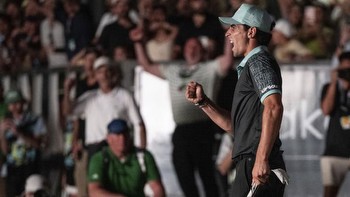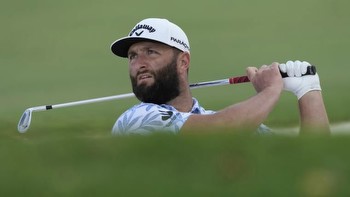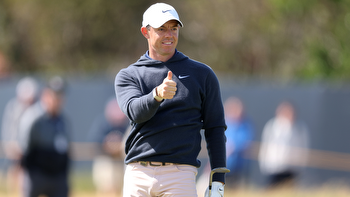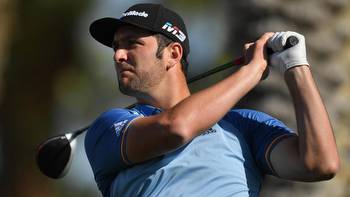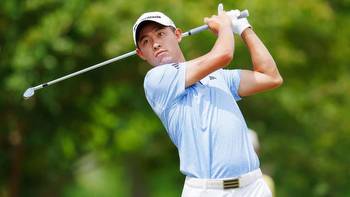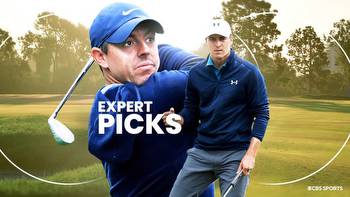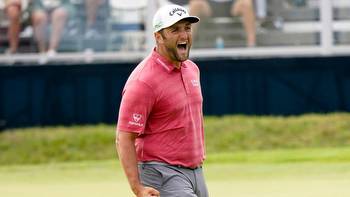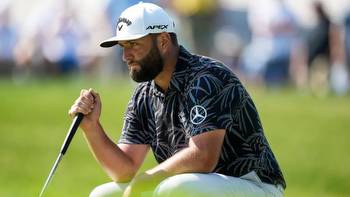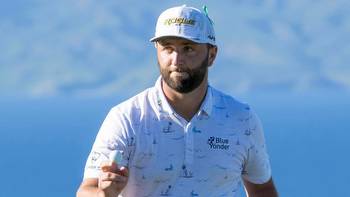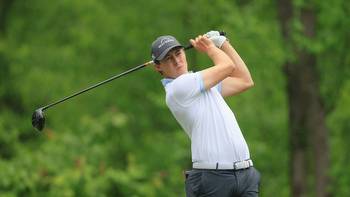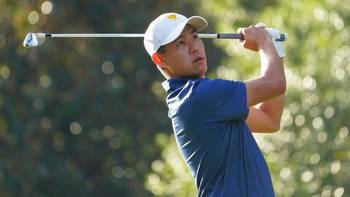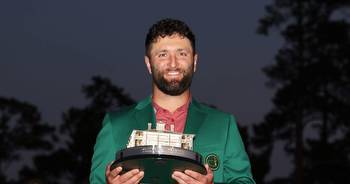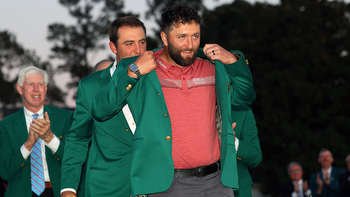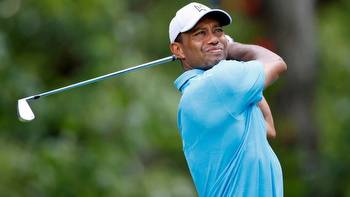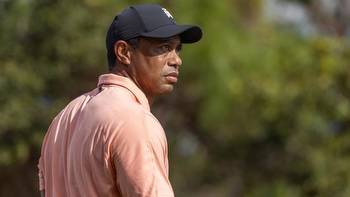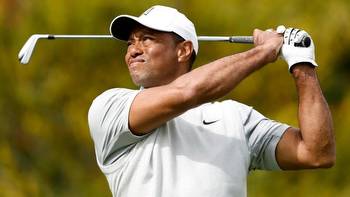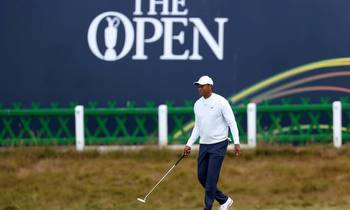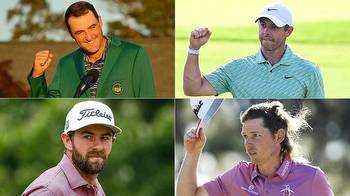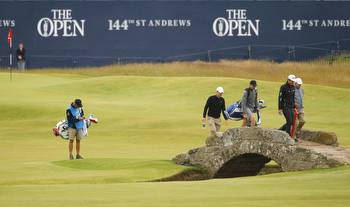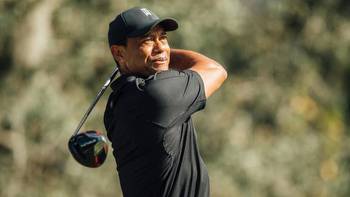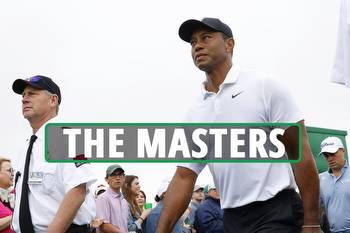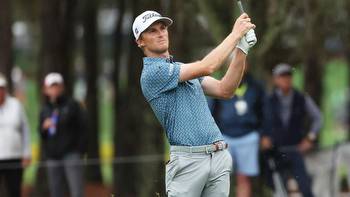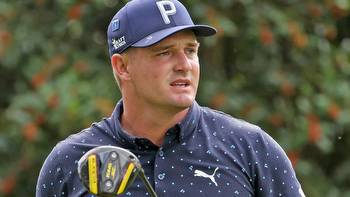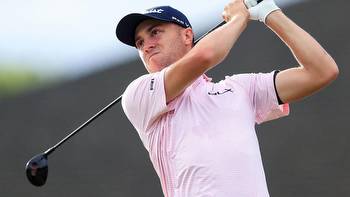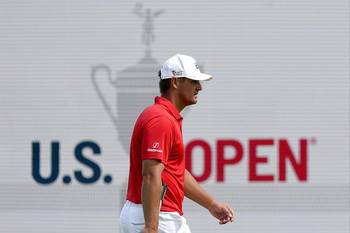The Rapture-and Relief-of Jon Rahm’s U.S. Open Victory
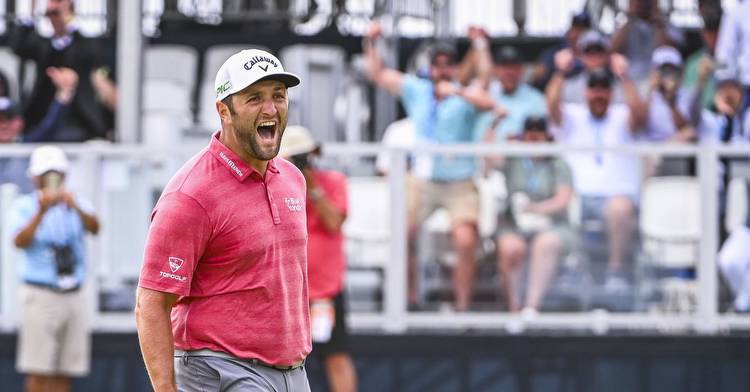
Golf is built around the duality of agony and ecstasy. Only “duality” is probably putting it too strongly. If you’ve ever picked up a golf club, chances are your experience was 99 percent agony and 1 percent ecstasy—and that 1 percent may not have come until you cracked open a post-round beer in an attempt to forget what had transpired. It’s a cruel sport that delights in pummeling even the best players in the world. And no tournament does that better than the U.S. Open.
The U.S. Open is famed for its knee-high rough; dried-out greens that send balls flying if they miss postage-stamp-size landing spots; and winners that look less excited to be holding the trophy than relieved to have made it out with some semblance of their sanity still intact. This year, though, there was little that Torrey Pines, or the USGA, or even the loaded field of competitors could throw at Jon Rahm that was tougher than what he had already gone through earlier this month.
Two weeks ago, Rahm was walking off the Muirfield Village course after his third round, holding a commanding six-stroke lead on the Memorial field, only to be stopped by PGA Tour officials. Just steps away from the 18th green, he was informed that he’d tested positive for COVID-19 and would have to withdraw from the tournament. The scene became infamous immediately: Rahm, who had seconds before been celebrating an 8-under round of 64, dropped his head into his hands in disbelief. He walked to the clubhouse and—as emotion overtook him—alternated between rubbing his eyes and shielding his face from the crowds and cameras. It was the look of a man who’d just had a victory snatched out of his hands—and worst of all, the look of a new father who realized he would have to stay away from his infant son until he was out of quarantine.
Rahm suffered no symptoms through his bout with COVID, and after two negative tests and approval from health officials, he was cleared to play in the U.S. Open. Rahm said on Sunday that he saw this tournament as a way to regain some of what he’d recently lost. “I’m a big believer in karma,” Rahm said. “After what happened a couple weeks ago, I stayed really positive knowing big things were coming.”
Big things indeed. Rahm entered the U.S. Open as the odds-on favorite, and he stayed near contention all weekend. He entered Sunday three shots back of Louis Oosthuizen, Mackenzie Hughes, and Russell Henley, and that afternoon, he surged past a leaderboard full of major winners—Bryson DeChambeau, Brooks Koepka, Collin Morikawa, and Rory McIlroy, to name a few—to earn his first major championship and become the first Spaniard to win the U.S. Open.
Rahm’s 4-under 67 on Sunday matched the low round of the tournament, and was also one of the few subpar rounds by guys who entered Sunday within spitting distance of Oosthuizen, Hughes, and Henley. For much of the early part of the afternoon, the leaderboard was one of the more crowded ones we’ve seen at recent majors. Seven to eight golfers were within two shots of the lead for hours. But while Rahm managed to play his best golf on the back nine to claim his long-awaited signature win, the others fell away.
Morikawa, the 2020 PGA Championship winner, had a disastrous 13th hole, carding a 7 and taking himself out of contention. DeChambeau made a double bogey and quadruple bogey on his way to shooting 44 on the back nine and a 6-over 77 on the day. McIlroy hit two shots within the same bunker at no. 12 and finished five shots off the lead. Koepka had a chance to get to 4-under and post the clubhouse lead, but he bogeyed nos. 16 and 18 (the second-easiest hole on the course) to take himself out of the running entirely. And Oosthuizen, who led for most of the afternoon and acted as Rahm’s only real competition, hit his drive into a canyon at no. 17 and couldn’t match Rahm at 6-under par.
Throughout Sunday’s chaos, Rahm showed a levelheadedness that’s somewhat new for the 26-year-old. He got off to a quick start, birdying the first two holes, but when things slowed down after that, he didn’t panic or get flustered as he sometimes had in the past. He opened the back nine with seven consecutive pars. And even on no. 18, where he could have played a risky shot out of a bunker to try to force the issue with the tournament on the line, he took a calmer approach, hitting his shot away from the water before nailing a massive putt on the 72nd hole to make birdie anyway. The U.S. Open is known for its rough conditions, and its winners are prized for their patience and unflappability—qualities Rahm more than exemplified on Sunday.
Rahm’s steely demeanor is a far cry from what we saw at his first U.S. Open appearance as a professional four years ago. That tournament was more than a mess for Rahm—he finished 5-over and missed the cut. Here’s what ESPN’s Kevin Van Valkenburg wrote after Rahm’s Friday round: “Over the course of two frustrating days at Erin Hills, I saw Rahm kick his golf bag, chuck his putter, throw a bunker rake, tomahawk-fling a 7-iron up the 17th fairway, and following one particularly bad drive pound his fist into his hands, repeatedly, like a professional wrestler gearing up for Monday Night Raw.”
This isn’t to say that Rahm is lacking for emotion now. It’s more that he’s now finding the proper outlets for it on the course. And as his game has improved, and the reasons for frustration have gotten fewer and farther between, that emotion has changed—from agony back into ecstasy.
Two weeks ago, it seemed like the lasting images of Rahm from this year would be ones of heartbreak: a man with his head hanging in his hands, having just heard the news that would take a tournament from him, as well as time with his family. Now, though, we’ll have not one, but two ecstatic images to replay instead: the birdie putt at no. 17 that tied him with Oosthuizen for the tournament lead, and the one at no. 18, which ultimately gave him the win. Both featured yells, hops, and fist pumps—and both punctuated what a monumental day and year this has been for him.
After Oosthuizen failed to make an eagle at 18 to force a playoff, Rahm hugged his wife, cuddled his newborn son in a perfect Father’s Day moment, and showed why golfers stick around for the 1 percent of joy the sport gives you. “I just felt like the stars were aligning,” Rahm said. “I knew my best golf was to come.”

